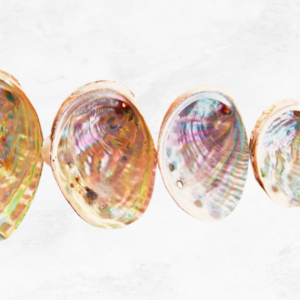
Sheltering: Kevin Nguyen, Live From His Kitchen
Episode 1: The Author of New Waves Talks to Maris Kreizman
On the debut episode of Sheltering, Maris Kreizman talks to author Kevin Nguyen from his Brooklyn kitchen about his debut novel, New Waves. Kevin shares what he’s been cooking, what he’s been watching on TV, and which questions he’d hoped to be asked at the bookstore events he never got to do. [This was a pre-recorded episode, not in front of a live studio audience.]
You can order New Waves from Kevin’s local bookstore of choice, Books Are Magic, or your own local store, or from Bookshop.org. Buy books!
*
From the episode
Transcription generously provided by Eliza M. Smith
MARIS KREIZMAN: All right, I’m gonna start. Welcome to the very first episode of Shelter in Place, the virtual book party. My name is Maris Kreizman, and I’m going to be talking to authors whose book tours got either completely cancelled or cut short. So here we go!
MARIS: So why don’t you introduce yourself and tell us how you’re doing.
KEVIN: My name is Kevin Nguyen. I wrote a novel that came out on March 10 called New Waves. I’m a journalist. I think I’m largely doing OK. Just sort of like—I think it helps to take stock of all your privileges. I have a job that will continue to pay me throughout quarantine, and one that’s not difficult to work remotely from. So, all things considered, I’m doing all right.
MARIS: Good. Good good. Tell us a little bit about your book.
KEVIN: Basically in broad strokes, it’s a novel about how grief makes people hilariously selfish, especially when the internet is involved. I’ve always thought about the internet as like an accelerant. And you know we usually talk about how it’s accelerating the way we treat labor or our relationship to the work force, capitalism, whatever. I also like to think of it as an accelerant for emotions and feelings.
MARIS: Yes!
KEVIN: It just sort of makes things, you know, faster and not always better. Often not better. So, yeah, just the broad stokes of the plot are there is this guy Lucas, he’s an Asian American man, and his best friend Margo, who’s a Black woman, they’re best friends; they work at this start-up, they get in all sorts of trouble together, and then after she dies kind of through sudden circumstances, Lucas is tasked with turning off her Facebook account. And so he gets her password through sort of surreptitious methods, it turns out the Facebook account [inaudible]—that happens on like page 40, so there’s a whole rest of the book, and it kind of stems from Luke’s wondering, oh I wonder if she uses the same passwords for everything. And it turns out she does. And then he starts to break into her online accounts. It’s kind of in broad swaths, like how we—even in things like grief, we just rationally know to take time and space, and we still try to work through it by doing as much as we can. Which, you know, the results are usually not good.
MARIS: How timely, Kevin. OK, so, one question you wished an audience member at a reading had asked you that I can ask you now.
KEVIN: Yeah, that’s a great question. I will say I was really lucky. I had my launch event on the day the book came out. So that was Tuesday, March 10, and since then basically everything has been cancelled. The rest of my tour is gone. But honestly, I feel really grateful that I got a one off. So, I didn’t get many questions.
MARIS: Did you get comments?
KEVIN: No, there weren’t like bad questions, it was just a short Q&A. I always try—I wanted to keep it to a tight three or four questions by design because I think that’s the part of a reading where people really start to be like, I just want to get my book signed and then I want to go get a drink around the corner, or get dinner. I think that’s the hardest thing about book events is that they’re always around 7 or 7:30, and by the time it’s 8 or 8:30, you’re like, I’m starving. It’s a weird time to eat. But yeah, in terms of questions—you know it’s interesting. I’ve done a bunch of interviews about the book. There are three central characters: Lucas, Margo, and Jill, and no one really asks about Jill.
MARIS: Oh, interesting.
KEVIN: Yeah. And to be fair, when I just described the book to you, I didn’t even mention Jill because she’s sort of like the second act.
MARIS: So maybe that’s why. She’s introduced a little later in the book. But tell me about Jill!
KEVIN: I wonder if it’s like George R. R. Martin being like, why doesn’t anyone ask about Dorne? You know? Anyway. I don’t know. It’s less like—I wonder what people wonder about Jill. It’s just the character that I never really get questions about. Maybe she’s not interesting enough.
MARIS: Stop self-deprecating. Tell me about what you were trying to do with Jill then. What did you want readers to take away from experiencing her?
KEVIN: Yeah. She’s—so Margo and Lucas are kind of in their early 20s, and you know, kids in their early 20s are figuring themselves out, and I always feel like that coming of understanding one’s identity is a reckoning of sorts. Like a personal reckoning. Jill is funny because she’s like in her 30s, and I kind of wanted to illustrate how that thinking can come later, especially for people in New York. It’s just so easy to put off the things that—I don’t think there are clear markers for what makes you a grownup necessarily, but there are just things that people put off for a long time, that we’re actually kind of seeing now. I just think about all of my New York friends who can’t cook, like you—
MARIS: Hi!
KEVIN: But it’s sort of like—and I don’t think you actually need to know how to cook to live in New York. Even now, it’s kind of funny, I thought it would be this thing where everyone would teach themselves how to cook, but now I’m just like oh, we should be doing more takeout and delivery to keep these restaurants in business.
MARIS: Yes.
KEVIN: So that one kind of turned around on me. But yeah, there’s sort of little ways of taking care of yourself, and because New York is constantly providing for you, it’s always giving you choice and opportunity, even if it makes those things feel oppressive. That was kind of the thing I wanted to do with Jill. She’s really the New York character, or the privileged New York character that I wanted to illustrate.
MARIS: And even she goes to dive bars that aren’t really dive bars.
KEVIN: Yeah, right. She just feels like she should, and it’s a funny thing. There’s kind of also a—momentum’s the wrong word, it’s almost like a current that carries you in New York, where it’s just easy to feel like you’re making progress when really, you’re just kind of being swept up by what’s going on. Which is one of the comforts and I think one of the downfalls of living here.
MARIS: Absolutely. Tel me a little bit—because we’ve talked about this before—but one thing I really love about New Waves is that nostalgia for a time on the internet when corporations hadn’t taken over yet, and you could just have so much freedom to meet people who have the same interests as you and just create weird shit.
KEVIN: Yeah. And I don’t want to say that all of those pockets of the web are gone, but they’re largely gone, right? Social media—and I sound so old when I say this, “social media”—but like Twitter and Facebook have fundamentally rewired the way that we discover things and interact with things. Everything is at such a massive scale now. So, there used to be these smaller communities, and they used to take the form of internet forums, at least for me. Some people had LiveJournal, which was actually, you know, as much as I like the weirdness of early LiveJournal, LiveJournal’s kind of the beginning of things trying to [gestures at coming together]. Because you could just host your own forum with a hundred people. And imagine a community of a hundred people, it sounds so small in the scale of the internet. But you could be on such specific forums, and it’d sort of be like markers for a kind of person, and you’d meet people, and it was also a time when people were anonymous. We had screen names because we were still worried about, uh—
MARIS: Privacy?
KEVIN: Yeah! Privacy, right?
MARIS: Now we don’t bother.
KEVIN: Yeah, we were protecting ourselves. And in some way that internet can’t exist anymore because anonymity sort of breeds organized harassments in a way that didn’t exist at the time because things weren’t at the same scale. You know, I miss the days when I was on like a forum for people who read like Chuck Palahniuk books and a forum for people who liked the band Incubus and forums for people who played specific video games. You could pop your head in all these communities, and you would meet people, and the only way you would come to understand them was by what they wrote. You didn’t know who they were, you didn’t know how closely their avatar matched their personality. You just had their posts and their writing. Imagine that constituting an entire being of a person as you understand them.
MARIS: Yeah. So, speaking of that, what are you doing to entertain yourself now?
KEVIN: It’s actually funny. I just keep looking at this copy of Severance by Ling Ma, and I’m like, am I going to reread it? I think I’m not going to. There’s been a lot of great writing around it.
MARIS: There has been.
KEVIN: A lot of it’s gotten deep into “it’s so relevant now,” which I love. Severance is deeply a work novel.
MARIS: Yes.
KEVIN: I’d already written my book before Severance came out, and I’d read that, but there were just sort of things that I thought Ling Ma did better than my book did. Everybody should read Severance. I don’t know if you should reread it. I don’t know, I’ve mostly been watching TV.
MARIS: Yeah, what have you been watching?
KEVIN: My partner’s never seen Rick and Morty, so we’re doing that.
MARIS: Ah!
KEVIN: We keep meaning to start kind of ambitious movies, but we keep cutting over to Rick and Morty, things like that. I finished watching The Outsider. Do not watch The Outsider.
MARIS: You were very enthused about it for the first couple of episodes. Correct?
KEVIN: Yeah, the first two episodes were excellent. You have this idea, like the setup of it, which is like a lot of Stephen King stuff where the setup is amazing and it doesn’t really deliver. But Jason Bateman is accused of this horrible crime, and there’s physical and video evidence that he committed it, and then there’s also evidence that he was in a completely different place at the same time. So, the beginning, it’s like this detective, played by Ben Mendelsohn, who’s wonderful, just reckoning with that. Like oh, the entire foundation of what evidence is, the entire foundation of what it is to be a cop who solves crimes, is just like, gone. And I just thought the show would be him reckoning with that, and then it turns out there’s a demon named El Cuco.
MARIS: Oh no!
KEVIN: So the next seven episodes are just like, how do we catch El Cuco? This hyped up character.
MARIS: Life is a flat circle, huh?
KEVIN: I know, yeah. I mean, kind of a similar thing. It’s actually like True Detective in the sense that True Detective hinted at all this supernatural stuff and it ended up being none of that stuff. The Outsider hints that it’s going to be very realist in a lot of ways, and then it just goes way off the rails.
MARIS: Amazing.
KEVIN: Yeah. What are you watching?
MARIS: I am doing a 30 Rock rewatch.
KEVIN: Oh, that’s a great idea.
MARIS: I had a list of so many different movies that I was going to watch and new TV shows and books that I’ve been meaning to read for years and years and years, and I just want comfort.
KEVIN: Yeah.
MARIS: How about eating? What are you eating?
KEVIN: I’ve been cooking a lot. Cooking a lot of like really simple meals. It’s funny, do you know that Marcella Hazan pasta sauce recipe?
MARIS: No!
KEVIN: It’s super simple. It’s just whole peeled tomatoes, like five tablespoons of butter, and then like half an onion. That’s it. And you just cook it for 45 minutes. It’s incredible. So I made that, ate that for like three meals in a row. And then it was like last Saturday before we were really quarantined, I dropped by my friend Brendan’s house, and he was making that for dinner also. So I ate it for like four meals in a row. But it’s really great. It keeps well. And then last night I made fried rice. It’s nice to be in a rhythm because you have to make yourself breakfast, lunch, and dinner. So I’ve been trying to keep those things simple. It’s nice to actually be in charge of your own meals of the day. Because when I go to the office, there’s a bowl of something, you know?
MARIS: Yes. That’s great. I think this was a great start. Thank you. Is there anything else you want to add?
KEVIN: No, this was fun. That was fast.
The Virtual Book Channel
Launched during the coronavirus pandemic as virtual literary communities began emerging in vital and unexpected ways, The Virtual Book Channel seeks to provide the best possible platforms for writers to reach their readers. The VBC (aka “The Veeb”) is a curated channel that archives live-streamed programming through partnerships with independent bookstores, literary festivals, authors' WFH spaces, and more.



















